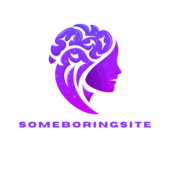
Exploring the realm of mathematics often leads us to intriguing puzzles that challenge our understanding of logic and reasoning. One such enigma that continues to captivate mathematicians and philosophers alike is the axiom paradox. In the world of mathematical theory, where certainty is a cornerstone, the axiom paradox disrupts our conventional beliefs and beckons us to question the very foundations of our knowledge.
As I delve into the intricacies of the axiom paradox, I’ll unravel the complexities that lie beneath its seemingly straightforward surface. This paradox serves as a gateway to a realm where certainty and ambiguity coexist, inviting us to embrace the uncertainties that lurk within the realm of mathematical truths. Join me on this intellectual journey as we navigate through the paradoxes that challenge our perceptions and redefine the boundaries of mathematical certainty.
Axiom Paradox
Definition and Origins
 Exploring the concept of the axiom paradox, I dive into its intricate nature that challenges the very core of mathematical foundations. This paradox, originating from set theory, presents a fascinating enigma that shakes the certainty typically associated with mathematical truths.
Exploring the concept of the axiom paradox, I dive into its intricate nature that challenges the very core of mathematical foundations. This paradox, originating from set theory, presents a fascinating enigma that shakes the certainty typically associated with mathematical truths.
The axiom paradox emerges from the attempt to establish a set of axioms to build the foundation of mathematics. However, this pursuit encounters a paradoxical dilemma where the consistency of these axioms leads to contradictions that defy logical explanation. This paradoxical nature questions the very essence of mathematical certainty and opens a realm of ambiguity within a traditionally precise domain.
Key Concepts and Examples
Delving deeper into the key concepts surrounding the axiom paradox, I unravel the complexities that underlie this puzzling phenomenon. One fundamental aspect is the notion of self-reference within the axioms, where statements refer to themselves in recursive loops, culminating in paradoxical conclusions.
An illustrative example of the axiom paradox is the famous Russell’s Paradox, formulated by Bertrand Russell in the early 20th century. This paradox arises from the attempt to define a set that contains all sets not containing themselves. The ensuing contradiction exposes the intricate interplay between logic, set theory, and self-reference, challenging traditional mathematical frameworks.
The Impact of Axiom Paradox on Mathematics
Challenges in Mathematical Logic
 Exploring the axiom paradox reveals profound challenges in mathematical logic. This phenomenon disrupts traditional beliefs by questioning the very foundations of knowledge in mathematics. It blurs the boundaries between certainty and ambiguity, presenting a unique conundrum for mathematicians. The paradox originates within set theory, where established axioms can lead to unexpected contradictions, challenging the logical coherence of mathematical systems.
Exploring the axiom paradox reveals profound challenges in mathematical logic. This phenomenon disrupts traditional beliefs by questioning the very foundations of knowledge in mathematics. It blurs the boundaries between certainty and ambiguity, presenting a unique conundrum for mathematicians. The paradox originates within set theory, where established axioms can lead to unexpected contradictions, challenging the logical coherence of mathematical systems.
Paradigm Shifts in Mathematical Theories
The axiom paradox triggers significant paradigm shifts in mathematical theories. By introducing ambiguity and self-reference within axioms, it forces mathematicians to reevaluate established frameworks. This phenomenon, exemplified by Russell’s Paradox, showcases how seemingly stable mathematical principles can unravel when faced with self-referential constructions. Such upheavals prompt a reexamination of fundamental concepts, pushing the boundaries of mathematical understanding and challenging researchers to explore new avenues within the field.
Axiom Paradox in Philosophy and Theoretical Computer Science
Philosophical Implications
 Exploring the axiom paradox in philosophy unveils profound implications on the nature of truth and the limits of human comprehension. The paradox challenges our fundamental notions of certainty and logic, blurring the boundaries between what is considered definite and what is potentially contradictory. In philosophy, the axiom paradox beckons us to question the very foundations of knowledge and rationality, forcing us to confront the inherent limitations of human reasoning.
Exploring the axiom paradox in philosophy unveils profound implications on the nature of truth and the limits of human comprehension. The paradox challenges our fundamental notions of certainty and logic, blurring the boundaries between what is considered definite and what is potentially contradictory. In philosophy, the axiom paradox beckons us to question the very foundations of knowledge and rationality, forcing us to confront the inherent limitations of human reasoning.
Influence on Computer Science
In the realm of theoretical computer science, the axiom paradox plays a pivotal role in shaping the boundaries of computability and algorithmic complexity. By encountering paradoxes rooted in self-reference and logical inconsistency, computer scientists are confronted with dilemmas that echo the challenges faced in mathematical logic. The influence of the axiom paradox on computer science extends to the development of theoretical models, such as the exploration of undecidability and the limits of algorithmic problem-solving. In essence, the axiom paradox in theoretical computer science serves as a catalyst for innovation, pushing researchers to grapple with the enigmatic nature of computation and the inherent limitations of logical systems.
